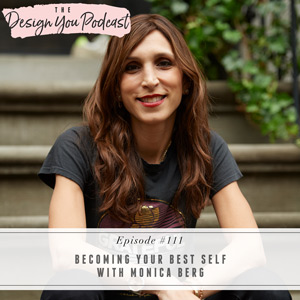
Hey friends, welcome back! I have an incredible guest for you today – international speaker, author, spiritual thought leader and self-proclaimed ‘change junkie’ Monica Berg. Monica joins us today to discuss our relationship with our own selves and the things that hold us back. There is so much goodness in this episode, you do not want to miss it!
Monica believes that the key to living a fulfilled and happy life is being flexible and able to find the unique opportunity and gift in every challenge. As humans, we naturally do not like change. So often, we’re afraid of taking a leap of faith into the unknown, worrying that we’ll make ourselves look silly, or worse – fail. So fear holds us back and we don’t even try. But this is just our ego, our belief systems and our own limitations. The great news is that we have the power to change our perspectives at any step of the way. And that can be right now!
Join us to hear why every single person can be anything that they want. We’ll discuss how to create positive changes in your life, and how to get out of your own way and achieve success. Happiness and fulfillment come from within, and the sooner you get into the right headspace, the sooner you’ll experience the magic of the life you really want.
If you want to keep this conversation going, you have to join my free Design You Podcast community on Facebook. We have great conversations over there about the podcast episodes and our podcast guests are in there too! So head on over and I’ll see you there!





